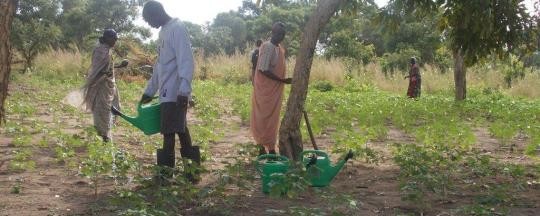Residents in Abyei area between Sudan and South Sudan are preparing themselves for the upcoming planting season.
The Abyei Administrative Area (AAA) is calling on farmers to grow more food this season to reduce the risk of hunger. AAA agricultural inspector, Makuach Dau, said a large amount of rain was predicted this year, which would support high crop yields.
In advance of the planting season, humanitarian organization CARITAS has given out agricultural tools including hoes, scythes, and axes to almost 3500 farmers in eight Abyei villages in order to help them produce more food.
In the event that not enough food is grown, the World Food Programme has also begun supplying four months’ worth of food rations for a newly built store house in Waucin. The acting director of the Relief and Rehabilitation Commission in Abyei, Dhieu Bol, said the food was intended for people in Agok, Wunpeth and Mading Jokthiang.
For those who cannot afford to buy food or cannot work in fields, the NGO Mercy Corps is giving out money to vulnerable families including those headed by orphans or widows. Each such household will receive 125 SSP. 250 households in Agok and Abathok will benefit from the program before it extends to other areas.
Bugs for breakfast?
Meanwhile, some people in Abyei are advocating an alternative local food source: termites.
A nutritionist with Save the Children-Sweden, Dr Izama Michael, said winged termites were free, widely available, and nutritious because they contained a high proportion of protein.
Winged termites appear in Abyei every year at this time in large numbers, and can be consumed as food. Unlike some communities in South Sudan, Abyei residents do not traditionally eat termites, though at least one elderly man in Abyei said he used to eat them as a boy.
Reporting by Abyei Today




